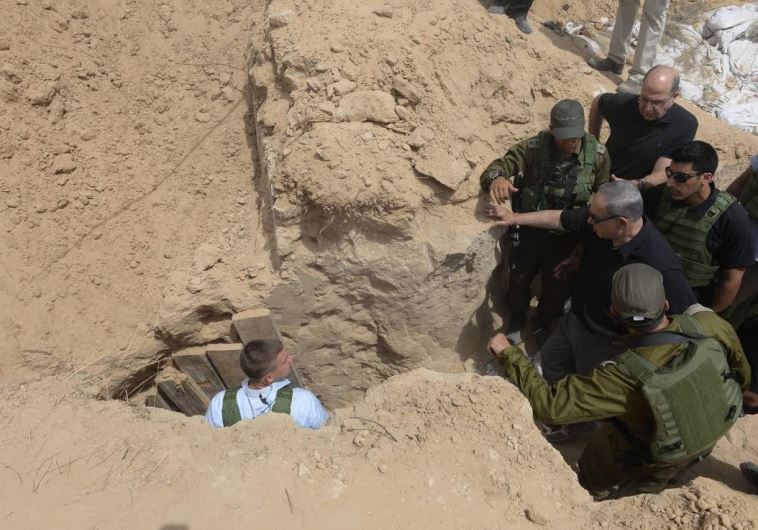Analysis: With his back against the wall, Netanyahu goes on the offensive
The prime minister is concerned that attacks on his handling of the Gaza war will be used to undermine his position.
 Prime Minister Benjamin Netanyahu visits the Gaza border, May 3, 2016(photo credit: AMOS BEN GERSHOM, GPO)
Prime Minister Benjamin Netanyahu visits the Gaza border, May 3, 2016(photo credit: AMOS BEN GERSHOM, GPO)